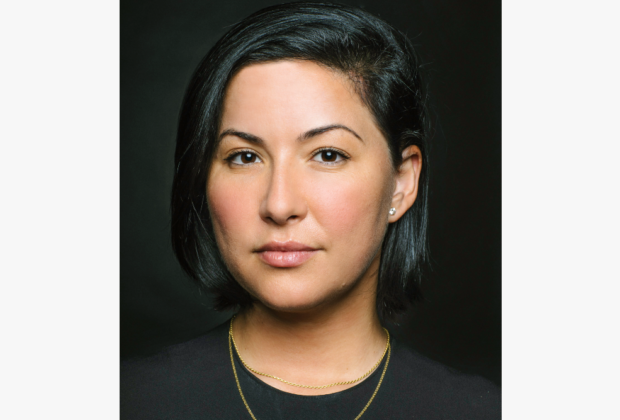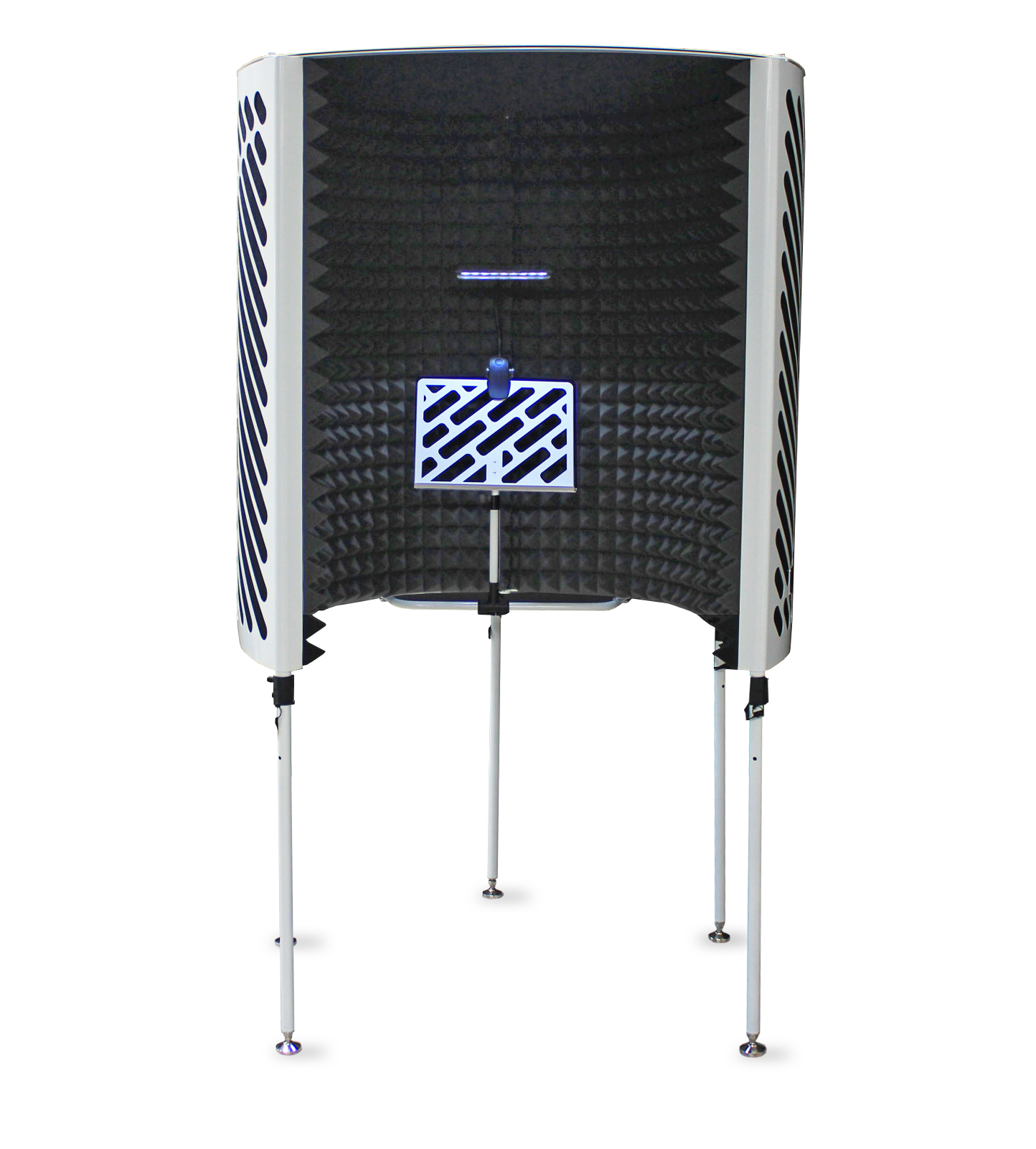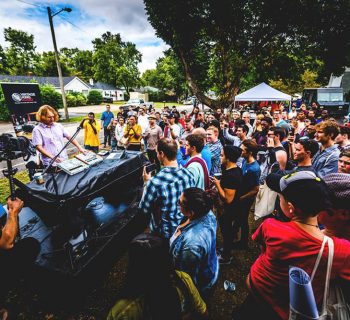Lola Plaku
Lola Media Group
Founder & CEO
Years with Company: 5
Phone: 647-370-5914
Web: lolamediagroup.com
E-mail: [email protected]
Clients: Belly, Nav, Amaal
BACKGROUND
Lola Plaku had to figure out the music industry on her own. Now that she has 15 years of industry experience under her belt, she’s helping other women get in with the sort of assistance she wishes she had. Girl Connected is a unique mentorship program that connects applicants with active players. Recently, the Canadian-based nonprofit began accepting applications from Americans.
Connecting Others
I founded Girl Connected about two years ago. I have worked in the music industry for over 15 years. I had to learn everything myself. Girl Connected is figuring out a way to combine women who want to work in the music business with people who have experience, to work alongside them and be able to apply that to future opportunities.
The Hard Way
I started off being a journalist. I wish I had been able to navigate that world better in terms of the right way to conduct an interview, do research or pitch to publications. When I wanted to get into other magazines, I was always turned down because I didn’t know how to pitch. From there, I went into concert production. And that was just me figuring it out by myself.
Applications
The application process is fairly easy. For the past two years, we’ve only been available to mentees in Canada. We are partially funded by Factor, which is a government program, so we opened [there]. This year, we opened to mentees in the U.S. We noticed there were a lot of inquiries from the U.S. and job opportunities for us to place graduates.
Applications stay open for about four to five weeks. Applicants have to have a resume, recommendation letter, and headshot, and then answer several questions. We cater it based on the programming we offer. The first year, we had an essay where you explain the job you want and what you think that job is. This year, we broke it into smaller questions, so they’re more to the point, giving them a chance to give us bullet points instead of writing longer essays.
We ask for references to their work, if they have any. Their social media accounts, so we can see their overall profile. And then we review it. We’ll consider the mentees based on what they’re applying to do, their experience, their goals.
Going International
We’ve had a ton of applications from the U.S. I thought New York and L.A. were where I was going to get applications from. Instead, it was everywhere—Texas, Florida, Ohio… The next step for Girl Connected is to have a full mentorship program in the U.S. And then after that, London. There’s a huge music community in London, and I would love to be able to contribute to growing women in music in the U.K.
From Workshops to Assignments
When we first conceptualized [Girl Connected], we envisioned workshop-type sessions. The idea was to create these workshops where mentees would be grouped with other mentees with the same interests, connect with a mentor, and get advice. We ended up making it assignment-based.
Mentee Tasks
This year, the mentees’ first project is to do research. They have to compile a sheet of peers in the industry. The research process is about three months. Their only job is to put this sheet together. Throughout those three months, they attend internal workshops. We do two workshops a month with professionals in their fields, as well as the instructors we’ve picked for the year.
After those three months, the mentees in artist development have to deliver a five-song EP from an artist they’re working with. The songs don’t have to be mixed or mastered, but they have to have audio files and all the paperwork that goes with it—lyrics, split sheets, agreements, track listings, artwork, artwork agreements, everything you would need if you were delivering an EP in the real world. They have three months to put that together.
For the mentees in artist marketing, their goal is to work on an artist rollout. We want to see how their minds work in developing a rollout plan. They attend workshops throughout the process. We meet at least once a week to give as much guidance as possible. We review these projects and give feedback.
After that, we put them in a group to create a marketing plan for one of the EPs that was delivered. Then, they present that plan to a group of peers from the music industry.
Question Time
It’s difficult in the beginning. Everybody is nervous and scared. Somebody will ask a question and another mentee will be like, “I have a question, too.” We encourage everybody to ask a ton of questions.
Where You Belong
No matter how hard I worked, nobody said, “You’d be amazing as a management executive at this company.” It was more like, “Oh, that’s a great job.” And that’s about it. We look at [the mentees’] work and say, “You would kill it here. Let’s see if we can call somebody and do that.”
We had a mentee who’s managing an artist called Idman. She was just part of the team, not management. She was like, “Oh, I’m just on the team.” And we were like, “You’re doing management, though. Own it. That’s what you do.” I was able to get her an internship at a studio in LA. She never even imagined that would be her life. I love that.
If anybody has opportunities in the music business and is looking for applicants, we would love to send some of our graduates that might be a good fit. We welcome any openings.
Relationship Building
Building relationships is one of the biggest questions. “How do I start these relationships and maintain them?” Most people are afraid to go up to somebody and say, “Hey, I love what you do. I’d love to connect,” out of fear of being shut down or ignored. Hopefully, through this program, they build the confidence to believe enough in themselves to say, “I’d love to go for coffee,” or, “I love what you do.”
Mentors She Knows
I started with people I’ve worked with and know are experienced. I know they’re willing to work with the mentees. The first year, we had Adam Zia, who is an attorney; Krysten Price who was at Complex Networks on the talent side; Nicole Wyskoarko, the VP at Geffen/Interscope; and Riggs Morales, the VP of A&R at Atlantic.
I’ve worked with all these people. They’re the first group I went to and said, “I’m doing this program.” Riggs was like, “When you start Girl Connected, let me know.” Same thing with Adam. Those are the types of individuals I look into.
Last year, we had Lenny Santiago and Bianca Edwards from Roc Nation, Tone Lopez on the tour management side, and Ashley Kalmanowitz from Atlantic on the publicity side. Again, they’re individuals I’ve worked with for a long time.
Mentees Come First
The mentors are not picked until we receive all the applications. We want to make sure we are finding the right people that can help the mentees reach their goals. We create a shortlist of people we want to approach. Once we receive the applications, we go through them and see who’s interested in participating. If anybody wants to be a mentor, email us.
Stay Focused
[Becoming part of the music industry is] scary, but don’t worry. Just do your best and be consistent. Have clearly defined goals. It’s a challenge when you want to get in but you don’t know what you want to do. Identify what you’re passionate about and what your goals are. It will really help you create a career.













